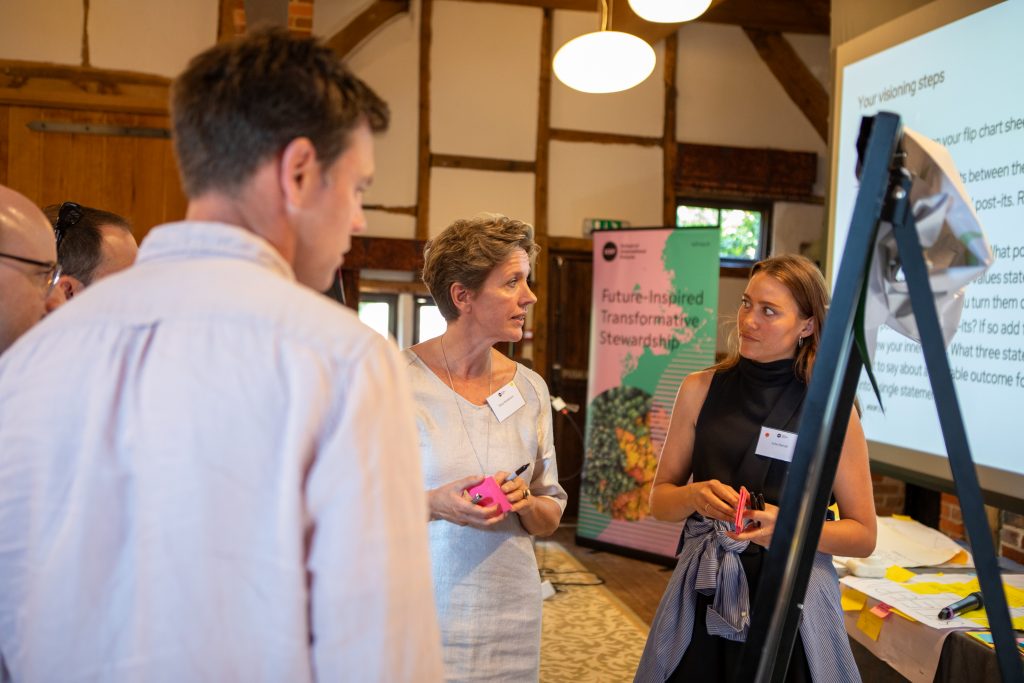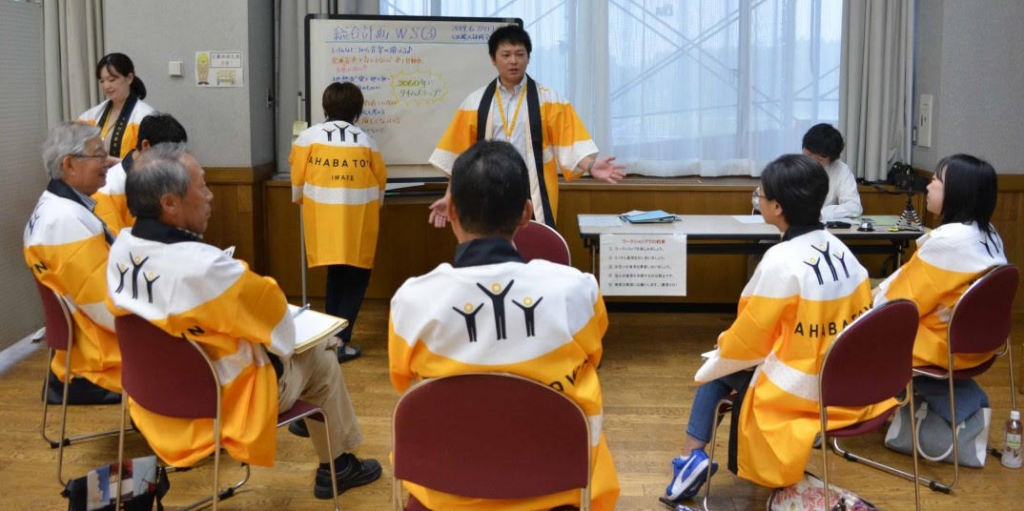A guest post by Tessa Roseboom

Tessa Roseboom (middle) at the SOIF 2024 Strategic Foresight Retreat
It was World Health Day earlier this week—and health is an inter-generational issue. Because health begins early in life. In fact, it starts at the very beginning. Or even earlier.
Environment and development
For the past 30 years, our team has been studying men and women who—like my own mother—were inside their mother’s womb at the time of the Dutch famine of 1944-45, during World War II. We found that the structure and function of the organs and tissues that were developing at the time were affected by the environment in which they were built. Brain size was smaller, brain wiring was different, and so was brain function. People whose brains were formed during the stressful times of the war-induced famine were more sensitive to stress, their cognitive function was worse, they were more likely to develop depression, anxiety, and anti-social personality disorders, and they were less likely to participate in the labor market.
Further, their metabolism was altered, making them more prone to become overweight and to develop type 2 diabetes and cardiovascular disease. People conceived during the Dutch famine died at a younger age, often of cardiovascular disease or cancer. The effects were not limited to this generation. Studies suggest that they are passed on from one generation to the next.
What I learned from these studies is that just like all living creatures, human beings are sensitive to the environment.
Especially during periods of rapid growth and development, like the period in early life when we develop from one single cell into a complete human being.
Our findings are not unique. Many other studies of famines, wars and natural disasters have shown similar effects. The environment in which human beings grow and develop affects their ability to develop to their full potential. When the environment in which an individual develops is suboptimal, this can have lasting consequences, for the individual and for society. These consequences are transmitted from one generation to the next.
Our responsibility to future generations
Research suggests that investing in a solid start to every human life repays itself many times over. The Nobel Laureate James Heckman has demonstrated the profound effects of such early investment in human capital development. The earlier the investment, the greater the return in human capital. The benefits extend across generations. This is why governments invest in Strong Start programs (such as Solid Start in the Netherlands). The research shows that healthy beginnings create hopeful futures. If every human being gets a fair chance to develop to its full potential, they are more likely to lead healthy, happy and productive lives.
This gives us a huge responsibility towards future generations. If we want to contribute to a world in which all human beings get a fair chance to develop to their full potential, no matter when or where they are born, we need to take the interests of future generations into account. There is an ethical case for this as well: as individuals we have no choice over our individual environment.
Hopeful Futures
One way of including the interests of future generations in our decisions and actions is through Future Design, developed by the Japanese researcher Tatsuyoshi Saijo. When experimenting with Future Design, we noticed that while these sessions lead to new solutions and creative ways of thinking, they also brought something else: hope. When we asked participants to rate how they felt about the future, we noticed something profound. The vision of the future, the sense of being able to influence the future, and people’s connection to both past and future, changed during the session. they felt more agency to influence the future. Hope is a cognitive process of goals, pathway and agency.

Participants in a Future Design workshop. Credit: Tatsuyoshi Saijo and Yahaba City Office
Thinking about my own ancestors, I realize that their actions shaped me. My paternal grandmother’s frustration as a curious and clever girl that she was not given the opportunity to learn and to finish her education, made her do things differently for her children and grandchildren. Thanks to her, I was able to satisfy my curiosity and go to school, to university and eventually to work as a full professor, teaching students and doing research. I tell my students about my journey, which started with historical birth records several decades ago and brought me to the UN Summit for the Future in September 2024 – to share the lessons I learned from studying the long term consequences of the Dutch famine at the end of World War II.
I am standing on the shoulders of my ancestors and feel indebted for the opportunities they created for me. As the Future Generations Commissioner at Amsterdam University Medical Center, I want to serve society through science and advocacy. I want to contribute to creating a climate in which all human beings get a fair chance to develop to their full potential. After all, healthy beginnings create hopeful futures, for this generation and the generations that follow.
Tessa Roseboom is Professor of Early Development and Health at the University of Amsterdam, and works at Amsterdam University Medical Centers. She is Future Generations Commissioner of Amsterdam UMC and an ambassador of the Solid Start program, funded by the Dutch Government. Tessa Roseboom has recently been appointed by the International Science Council on their global roster of experts. You can reach her here.
Connection between personal and professional, our past and our future, science to society. Join the conversation!
